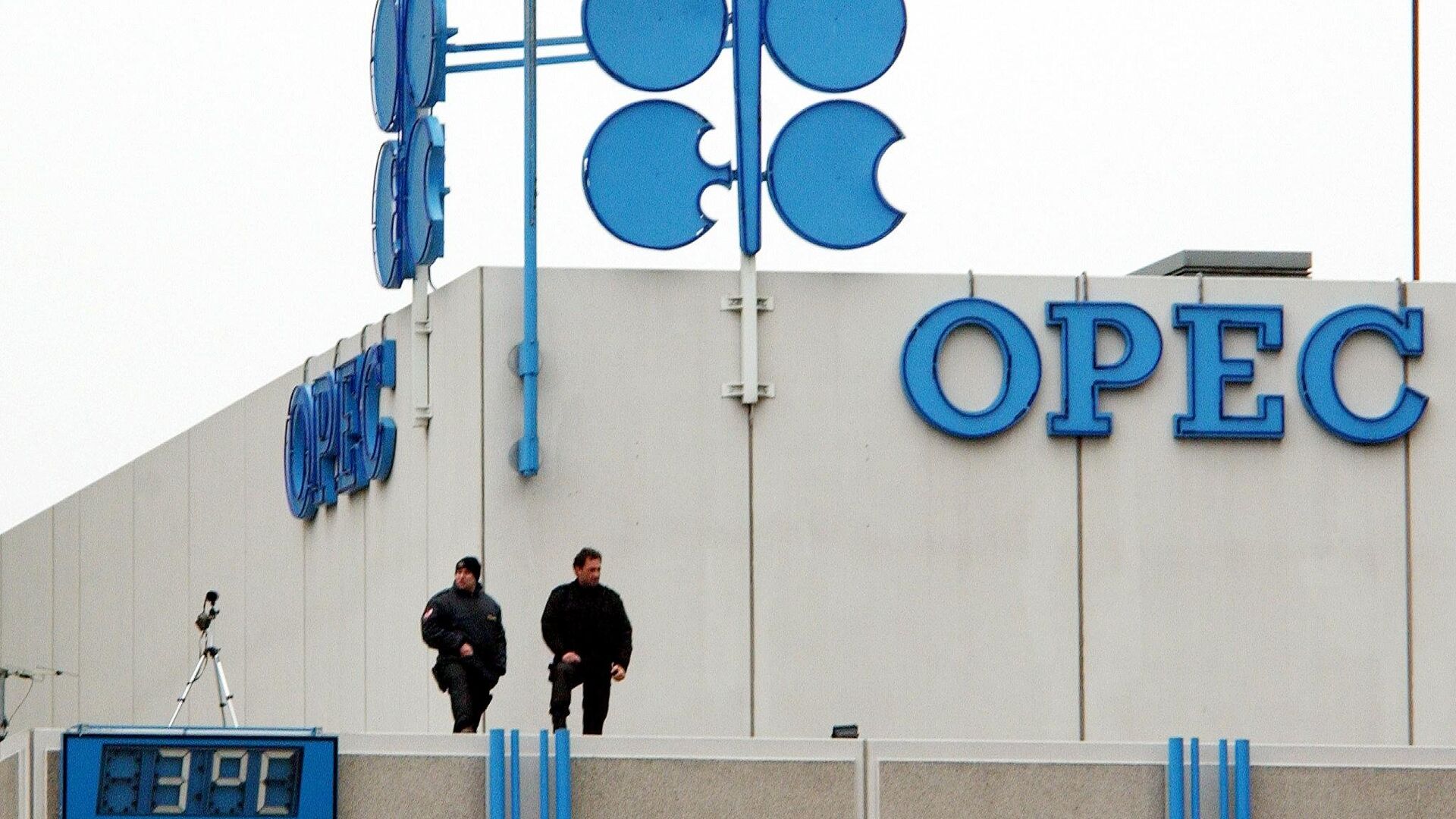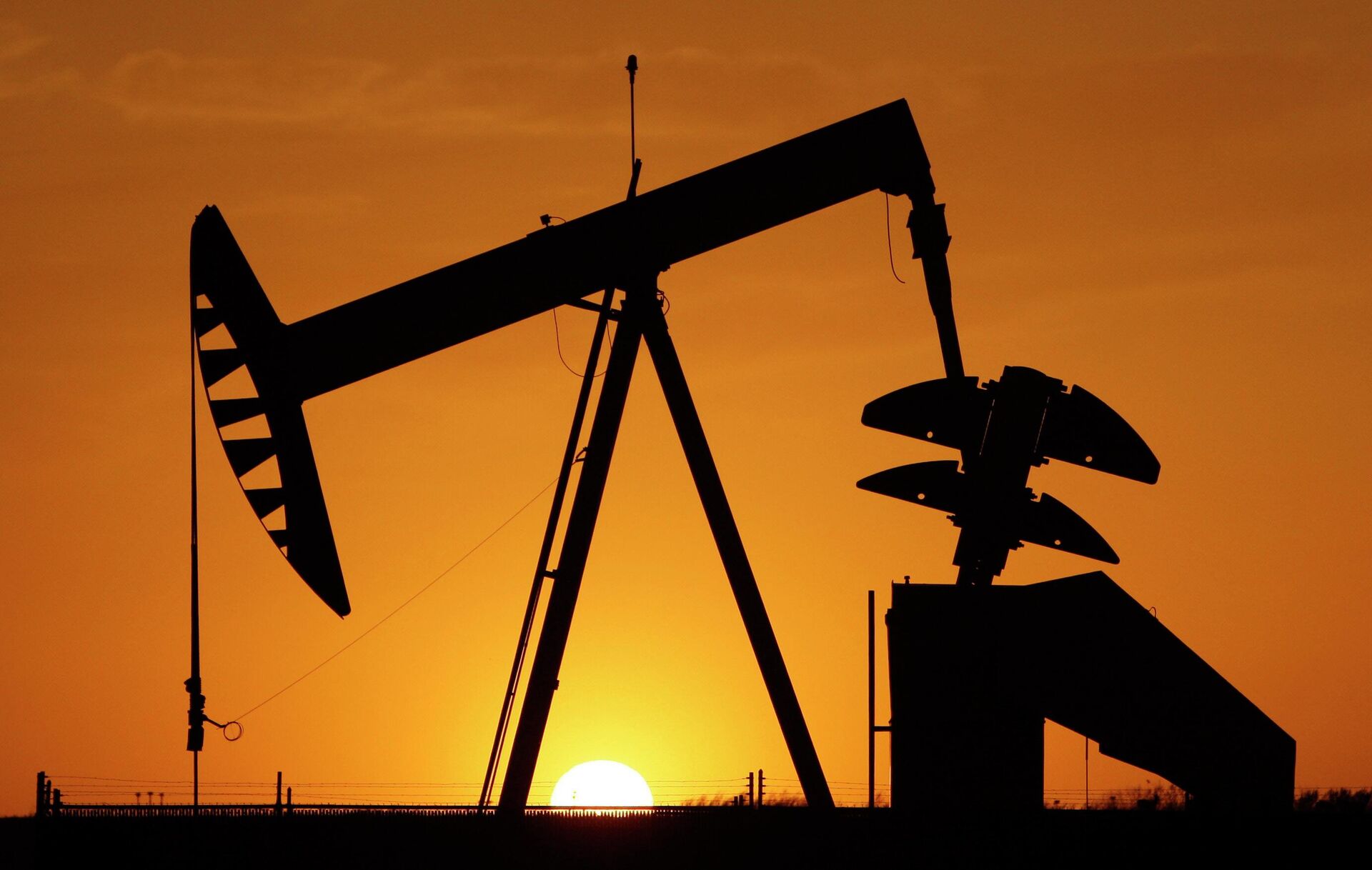https://sputnikglobe.com/20221005/opec-agrees-to-cut-oil-production-by-two-million-barrels-per-day-source-says-1101538321.html
OPEC+ Agrees to Cut Oil Production by Two Million Barrels Per Day
OPEC+ Agrees to Cut Oil Production by Two Million Barrels Per Day
Sputnik International
The organization, which includes Russia, Saudi Arabia and other oil producers, previously noted that it seeks to prevent volatility on the market. 05.10.2022, Sputnik International
2022-10-05T13:57+0000
2022-10-05T13:57+0000
2022-11-15T14:20+0000
world
opec
oil
https://cdn1.img.sputnikglobe.com/img/104572/00/1045720012_0:103:2048:1255_1920x0_80_0_0_53e4173564f7f641488472983fdd9f23.jpg
Countries of the OPEC+ agreed to cut their oil output by two million barrels per day on Wednesday, an official communique read. At the same time, the OPEC+ deal was extended until December 31, 2023.Previously, a source told Sputnik that all members voted in favor of the reduction after discussing oil market reports.The cuts are expected to enter into force this November.Previously, reports said that the cut was offered by the ministerial monitoring committee.The US reacted to the decision, with the White House saying that President Joe Biden is "disappointed". It also pledged to liberate another ten million barrels from the Strategic Petroleum Reserve to the market next month.The price of Brent crude soared above $125 a barrel in February after Russia launched its special military operation in Ukraine. The sanctions imposed against Moscow by the US, the EU, and Britain, resulted in skyrocketing gas and energy prices, however, over the following months, oil prices dropped well below $90.At the same time, G7 leaders proposed the imposition of a price cap on Russian oil - a plan which Moscow lambasted as "absurd", warning that the move will destabilize the oil market.In response, Russia also significantly boosted its exports to countries that ignored western sanctions: for instance, Moscow became the second-biggest oil supplier to India, closely following Saudi Arabia.
Sputnik International
feedback@sputniknews.com
+74956456601
MIA „Rossiya Segodnya“
2022
Evgeny Mikhaylov
https://cdn1.img.sputnikglobe.com/img/07e4/09/07/1080390164_0:0:1440:1440_100x100_80_0_0_46c187f2ab0908f86849a7d09a7def57.jpg
Evgeny Mikhaylov
https://cdn1.img.sputnikglobe.com/img/07e4/09/07/1080390164_0:0:1440:1440_100x100_80_0_0_46c187f2ab0908f86849a7d09a7def57.jpg
News
en_EN
Sputnik International
feedback@sputniknews.com
+74956456601
MIA „Rossiya Segodnya“
Sputnik International
feedback@sputniknews.com
+74956456601
MIA „Rossiya Segodnya“
Evgeny Mikhaylov
https://cdn1.img.sputnikglobe.com/img/07e4/09/07/1080390164_0:0:1440:1440_100x100_80_0_0_46c187f2ab0908f86849a7d09a7def57.jpg
opec, oil
OPEC+ Agrees to Cut Oil Production by Two Million Barrels Per Day
13:57 GMT 05.10.2022 (Updated: 14:20 GMT 15.11.2022) The organization, which includes Russia, Saudi Arabia and other oil producers, previously noted that it seeks to prevent volatility on the market.
Countries of the
OPEC+ agreed to cut their oil output by two million barrels per day on Wednesday, an official communique read. At the same time, the OPEC+ deal was extended until December 31, 2023.
Previously, a source told Sputnik that all members voted in favor of the reduction after discussing
oil market reports.
The cuts are expected to enter into force this November.
Previously, reports said that the cut was offered by the ministerial monitoring committee.
The US reacted to the decision, with the White House saying that President Joe Biden is "disappointed". It also pledged to
liberate another ten million barrels from the Strategic Petroleum Reserve to the market next month.
The price of Brent crude soared above $125 a barrel in February after Russia launched its special military operation in Ukraine. The sanctions imposed against Moscow by the US, the EU, and Britain, resulted in skyrocketing gas and energy prices, however, over the following months, oil prices dropped well below $90.
At the same time, G7 leaders proposed the imposition of a price cap on Russian oil - a plan which Moscow lambasted as "absurd", warning that the move will destabilize the oil market.
In response,
Russia also significantly boosted its exports to countries that ignored western sanctions: for instance, Moscow became the second-biggest oil supplier to India, closely following Saudi Arabia.




